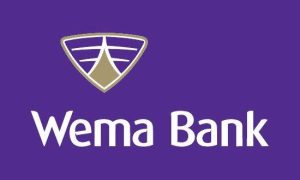
The new Student Loan in Nigeria aims to revolutionize access to higher education by providing interest-free loans to students.
It is a groundbreaking initiative designed to support individuals who aspire to pursue education in recognized institutions across the country.
This program is intended to ease the financial burden on students and their families, enabling them to focus on their studies and achieve their academic goals.
In this article, we will explore the key aspects of student loans, including requirements, the application process, loan repayment terms, the consequences of non-payment, and more.
Accessibility
The Student Loan Act aims to provide easy access to higher education for Nigerians through interest-free loans. It is designed to support less privileged students who want to pursue education in state or federal government universities, polytechnics, colleges of education, or vocational schools.
Requirements
To qualify for the loan, the applicant must have gained admission to a recognized higher institution in Nigeria. Applicants must have their income or family income below N500,000 yearly.
Additionally, they need to provide guarantors who are civil servants with at least 12 years of service or have legal professionals or judicial officers as guarantors.
How to Apply for Student Loan in Nigeria
Students can apply for the loan through their respective higher institutions. The application process will involve screening to ensure that applicants meet all the necessary requirements.
Here’s how to apply for student loans in Nigeria:
- Ensure you meet the eligibility criteria:
- You must have secured admission into a public Nigerian University, Polytechnic, college of education, or any TVET school.
- Your income or family income must be less than N500,000 per annum.
- You need to provide at least two civil servants as guarantors who have a minimum of 12 years of service at not less than level 12, a lawyer with at least 10 years of post-call experience, a judicial officer, or a Justice of Peace.
- Students who have defaulted on previous loans have been found guilty of exam malpractice, felony, or drug offenses will not be considered.
- Students with parents who have defaulted on previous loans will not be considered.
- Collect necessary documents:
- Gather the required documents, including proof of admission into the institution, income certificate, identification documents, and the details of the guarantors.
- Complete the loan application:
- Visit the Students Affairs Office of your institution to obtain the loan application form.
- Fill out the form accurately and attach the necessary documents.
- Submit the application:
- Submit the completed application form and supporting documents to the Students Affairs Office.
- Ensure that the application package includes a cover letter signed by the Vice-Chancellor, Rector, or the head of the institution, along with the Student Affairs office.
- Await loan approval:
- The bank will review your application and assess your eligibility for the loan.
- If approved, you will be notified by the bank regarding the loan amount and terms.
Note: Defaulting on loan repayment or aiding the default of any provisions of the Act is considered an offense and may result in imprisonment for two years, a fine of N500,000, or both.
Loan Repayment
The student loan in Nigeria is not a grant or free money; it must be repaid. Here are things to remember about student loan repayment
- Loan repayment shall begin two years after completion of the National Youth Service Corps (NYSC) program.
- Student loan Repayment is done through a direct deduction of 10% of the beneficiary’s salary at the source by the employer.
- If the beneficiary is self-employed, they must remit 10% of their total profit monthly to the designated student loan account.
- Self-employed individuals must submit all relevant information about their business to the Commission within 60 days of assuming that status.
Loan Purpose
Nigeria’s student loan is specifically designated for paying school fees. It is not intended to cover other expenses such as pocket money or project funding. Also, it is not intended for venturing into any form of business.
FAQs
Which bank is responsible for managing student loans in Nigeria?
The Nigerian Education Bank is saddled with the responsibility of supervising, coordinating, administering, and monitoring the management of student loans in Nigeria.
The bank plays a crucial role in approving and disbursing loans to eligible applicants. The bank will work with higher institutions all across the country to ensure smooth application and access to the loan.
Can Nigerians studying abroad take the Loan?
The student loan in Nigeria is solely available to Nigerians who are studying in any higher institutions in Nigeria.
Can I take a student loan if I have a pending loan with other loan companies?
You will not be able to take part in student loans if you have unpaid loans with other loan companies. Your BVN will be requested during the application process and if you have a pending loan your BVN will reveal this.
How much is the interest rate on student loans?
According to the student loan act, there’s no interest on the loan. The Federal government established this loan facility to help indigent students get education through interest-free loans.
What happens if I don’t repay?
Failure to repay the Student loan can lead to legal consequences. The law considers non-repayment an offense that may result in a fine of up to N500,000 or a prison sentence of up to two years.
Conclusion
The introduction of the Student Loan Act and the establishment of the Nigerian Education Bank mark significant milestones in Nigeria’s education landscape.
By offering interest-free loans to eligible students, this initiative paves the way for greater accessibility to higher education, particularly for those from economically disadvantaged backgrounds.
However, it is important to note that the student loan is not a grant or free money; it must be repaid according to the specified terms. Non-payment of the loan can have serious consequences, emphasizing the responsibility and commitment that borrowers have toward repaying the funds.
Overall, the student loan program in Nigeria represents a valuable opportunity for students to pursue their educational aspirations and contribute to the nation’s development.


